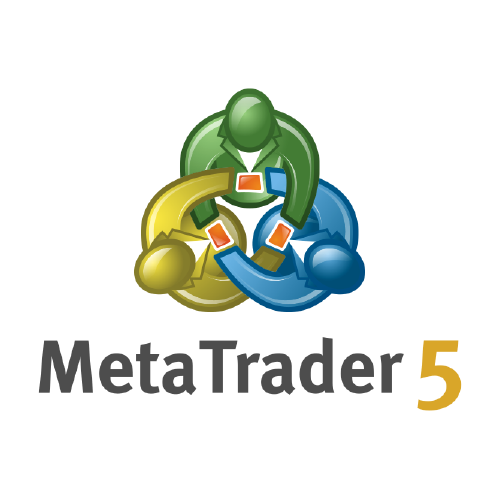So-called legislative risk is the risk that the government may alter laws or bring in new tax policies that change the basis on which previous investment decisions have been made.
Legislative risk is viewed as a huge risk by investors – what was given as a competitive advantage by one government may then be taken away in an increase or change in the tax position by the next.
What Is Limited Government?
A limited government is one whose legalized force and power is restricted through delegated and enumerated authorities. Countries with limited governments have fewer laws about what individuals and businesses can and cannot do. In many cases, such as the United States, it is a constitutionally limited government, bound to specific principles and actions by a state or federal constitution.
The opposite of a limited government is an interventionist or authoritarian government.
KEY TAKEAWAYS
- Limited government describes a political system whereby the central government’s role and authority is limited in certain respects, which is an important component of political, social, and economic freedom.
- On average, countries with limited governments are associated with higher annual incomes, better health, longer life expectancies, and greater political and civil liberties.
- However, limited government isn’t always synonymous with economic freedom and prosperity, as demonstrated by Honduras, Bangladesh, and Madagascar.
- Conversely, as the Netherlands and Sweden show, countries with large and socialized governments can still prosper if other components (e.g. rule of law, property rights, sound money, free trade) are strong.
Limited Government
Definition of Limited Government
The idea of a limited government is one that was pioneered by classic political liberalism and free market liberalism, though politicians and economists differ on the exact parameters. In its truest, most basic form, a limited government is a body whose main function is the protection of people and their property, and it levies just enough taxes to finance services related to these purposes, such as national defense or law enforcement. Otherwise, it stays out of people’s – and businesses’ – affairs. It does not concern itself with matters such as employee wages, higher education, how individuals invest funds for retirement or how many miles per gallon a vehicle should attain.
Another interpretation defines a limited government as one that exercises only the specifically named powers that its constitution assigns to it; it can also be characterized by a separation of powers and a system of checks and balances, as in the U.S. government. For example, the U.S. government is only supposed to exercise the specifically named powers that the Constitution assigns to it; its core functions include safeguarding individual liberty and protecting private property.
Limited Government and Finances
Everything a government does is paid for by taxes. By restricting itself to a bare minimum of public services, a limited government tends to impose a relatively low tax burden on businesses and individuals. With lower taxes, households and businesses have increased disposable income to spend, save, and invest, all of which helps the economy grow. That doesn’t mean services typically provided by governments, like roads, can’t exist; if there is a demand for them, the private sector will provide them instead.
Limited government means there are fewer rules that must be followed and enforced. The resources that would otherwise be devoted to complying with regulations can be dedicated instead to more productive uses or to leisure time. Ultimately, limited government is about having more individual freedom and the right to do what you want, as long as you don’t infringe on anyone else’s rights.
History of Limited Government
Limited government, in its modern conception, originated out of the classical liberal tradition in Europe. This tradition emphasized the rights of the individual and supplanted the age-old notion of subjugation to the state. Its practice has been transported to varying degrees to Australia, New Zealand, the United States, Hong Kong, Singapore, South Korea, Belgium, Switzerland, and other nations.
The Magna Carta, drafted in the year 1215, is one of the earliest pieces of evidence of a limited government. The document limited the reach of the English king’s power by giving the country’s nobility rights that they could exercise over the throne. However, the document only protected a small part of what is today the United Kingdom.
The United States Constitution, written in 1787, extended the idea of a limited government by requiring the election of legislators by the people. It also segmented the federal government into three branches: legislative, judicial and executive. Both of these aspects effectively limit the power of the national government.
In addition, the Bill of Rights – the first 10 amendments to the U.S. Constitution, ratified in 1791 – enumerates certain prohibitions that apply to the government. These rights further limit the federal government by forbidding intervention on matters of individual choice such as speech or religion.
Financial Trading is not suitable for all investors & involved Risky. If you through with this link and trade we may earn some commission.
Federalism as Limited Government
One of the main elements of a limited government is federalism. In a federal system, specific powers are given to a centralized government, while others are given to local governments – a system that creates additional checks and balances. In the case of the United States, there is a central government in Washington, D.C., and there are local governments established in each of the 50 states. Any powers not given to the federal government falls to the individual states. This deference to states’ rights gives individuals more freedom because local state governments are considered easier to control than the federal government. This allows each state to exercise local control while the federal government manages the country as a whole.
Limited Government and the Economy
Limited government favors few, if any, controls, not only on a nation’s individuals but on its economy. It is often associated with concepts such as laissez-faire economics, as first delineated in Adam Smith’s 1776 book entitled An Inquiry into the Nature and Causes of the Wealth of Nations. In this context, the most extreme sort of limited government would be one that lets supply-and-demand forces – Smith’s “Invisible Hand” theory – drive the economy; the government does not intervene to alter or influence economic cycles and business activity.
Proponents of this view believe limited government provides the greatest possibility for economic growth and the most equitable distribution of wealth. Historically, they argue, government-influenced markets tend to be expensive, exclusionary, monopolistic and poorly provisioned – interference with prices creates allocative inefficiencies. By contrast, when government interaction in the marketplace is limited, the unfettered markets are relatively more competitive, more productive and more responsive to consumer needs.
Critics of limited government argue that the government should control the economy to mitigate the harmful effects of economic ups and downs and that this type of control leads to less income inequality.
Limited Government and Capitalism
Limited government is also often seen as crucial to capitalism. While capitalism may tolerate government influence, it is almost always handicapped and made less productive by it, limited government proponents insist. The process of government action is diametrically opposed to the process of a free market economy: In a free market, businesses and individuals contract or transact on a voluntary basis, whereas a government program operates through sovereign decree – and compliance with its dicta is regulated through force. In effect, some individuals (government officials or those who influence them) can introduce change to other individuals without bearing the full costs.
Limited Government and Companies
How does limited government affect corporate citizenship – that is, the actions and business operations of corporations as they relate to social causes, environmental issues, political justice, and philanthropy?
That depends on the nature of the limited government. It may lack antitrust laws that effectively prevent monopolies and cartels from destroying healthy competition within an industry. Conversely, it may impose regulations that reduce the ability of firms to enter a market effectively or for shareholders to voice their opinions. It may offer tax or other financial tax incentives for corporations to invest in more responsible technologies or techniques.
One government may have a court system that protects local property rights and, by extension, the right of individuals or groups to sue a corporation for polluting a river or emitting too much soot. Another limited government does not provide clear property rights rules, enabling corporations to impose costs on third parties in socially destructive ways.
In a very general sense, smaller governments are less able to force corporations to act in ways that are generally considered ethical. By the same token, smaller governments have less power to encourage corruption. When a government controls or strongly influences business practices, corporations have far more incentive to try to buy that government influence.
Where Limited Government Works
Limited government intrusion – economically and socially – works best in societies where private property rights are respected and contracts are enforced, ensuring a high degree of voluntary cooperation. People need property rights to determine resource ownership, cooperate with one another and plan for the future. People also need enforceable contracts to encourage trust, settle disputes, and protect and transfer property rights. Sociologists have also argued that ethnically and religiously homogeneous societies are best able to survive with limited government.
Fraser Index Rankings
Since 1996, the Fraser Institute – a Canadian independent, nonpartisan research and educational organization – has produced annual reports, ranking countries in terms of how much their policies and institutions are supportive of economic freedom. It measures limited government by the size of government (top marginal tax rates, public spending), the legal system (protection of property rights, judicial independence), sound money (inflation), freedom to trade internationally (tariffs, trade barriers), and regulation of credit markets, labor markets, and businesses.
Financial Trading is not suitable for all investors & involved Risky. If you through with this link and trade we may earn some commission.
Ranking Economic Freedom
The following rankings of the countries with some of the most limited and the most controlling governments come from the Fraser Institute’s 2016 Economic Freedom of the World Index (“Fraser Index”), which analyzes 159 countries and territories.
Hong Kong
Hong Kong is technically a special administrative region of China, not a country, but it has its own government and a capitalist economy. Hong Kong ranks first in the 2016 Fraser Index for having the most limited government and the most economic freedom.
Limited government is arguably one of the reasons why Hong Kong, along with Singapore (which ranks second in the 2016 Fraser Index), South Korea and Taiwan, is considered one of the four Asian tigers, countries that have experienced strong and rapid economic growth since the 1960s. Hong Kong’s freedom to trade internationally, as measured by factors including low tariffs and low restrictions on foreign ownership and investment, along with its limited regulation of credit markets, labor markets, and business, make it an exemplar for other countries.
Hong Kong, a major international financial center, is home to one of the world’s largest stock exchanges and has low tax rates. The individual income tax rate is 15%, while the highest corporate rate is 16.5%. Government spending is just over 18% of GDP, and the government has a budget surplus and little to no debt. Hong Kong’s gross national income per capita in 2016 was more than $56,700, almost five times what those in mainland China earned.
Bangladesh
Despite having the second smallest government in the Fraser Index, Bangladesh comes in 121st in economic freedom thanks to poor ratings for its legal system, monetary system, trade freedom, and regulatory climate. It has weak property rights and a bribery problem, and government price controls hamper economic activity. Despite its pitiful per capita income of about $3,607 annually and attendant widespread poverty, Bangladesh is considered a frontier market because of its steady economic growth averaging 6% per year. Government spending is just 14% of GDP, but the individual income tax rate is 30% and the corporate tax rate is 25%.
Honduras
Coming in fourth in terms of smallest governments, Honduras ranks 64th in economic freedom. Relatively sound money and free trade bolster the country’s low ratings for regulation and especially for its legal system, which comes in at 137 out of 152. Government spending is about 29% of GDP, while government debt is about 47% of GDP. The highest individual income tax rates range from 10% to 20% and the corporate tax rate is 25%.
Honduras has major problems with crime and poverty, and per capita income is around $4,870 per year. However, an interesting development could bolster the country’s rankings significantly. As of January 2019, Honduras is still considering implementing a unique governance structure called “zonas de empleo y desarrollo económico” (zones for employment and economic development, or ZEDEs). These autonomous regions, also called start-up cities, would be allowed to create their own economic, legal and administrative systems, separate from those of Honduras overall.
Madagascar
Madagascar has the 12th smallest government of the countries in the 2016 Fraser Index but comes in 108th in economic freedom. Its performance is relatively high among African countries, but corruption is widespread, inflation is high, and contracts can be difficult to enforce, among other significant problems. Income taxes are relatively low, with a top rate of 20% for both individuals and corporations, and government spending is just 15% of GDP. The country has no stock market and income per capita is $1,462 a year. Despite its low rankings, it has improved and stabilized over the last two decades.
Financial Trading is not suitable for all investors & involved Risky. If you through with this link and trade we may earn some commission.
Countries With Large Governments
Algeria
Algeria ranks as the report’s second-lowest-rated country overall. It has one of the largest governments of all the countries studied, ranking at 157. Algeria also ranks near the bottom of the economic freedom list at 151. Algeria has been a major oil-producing nation, but depleted reserves, threats to personal safety from militants, and corruption within the country’s national oil and natural gas company, Sonatrach, have prevented the nation from realizing its full potential.
In addition, Algeria’s legal system, monetary system, trade freedom, and regulatory climate rank poorly. The economy has a large informal sector, with about half of transactions taking place in the black market. Despite its poor rankings, the average per capita income is $14,500. The highest individual income tax rate is 35%; the corporate tax rate is 26%; government spending is 40% of GDP, and government debt is 8.7% of GDP.
The Netherlands
Despite ranking as a large-government country (no. 154) in the 2016 Fraser Index, the Netherlands ranks 25th in economic freedom thanks to its highly ranked legal system, monetary system, and trade freedom. The Dutch enjoy a per capita gross national income of about $49,000. However, the Netherlands has struggled with the size of its national debt, which has hovered near 70% of GDP in recent years, despite a top individual income tax rate of 52%.
Sweden
Sweden wins second prize in the big-government category but ranks 38th in economic freedom. It is one of the most highly taxed countries in the world, with a top individual income tax rate of 62%, and government spending that accounts for about half of GDP. Indeed, Sweden is well known as a massive welfare state; the government, financed by taxpayers, provides Swedes with numerous benefits, including retirement pensions, sick leave, parental leave, universal health care, and childcare, and education through the college level. The high levels of government spending required to maintain these services may not be sustainable long term, but many scholars consider the Nordic model of free market capitalism and social benefits an ideal system. Swedes enjoy a per capita income of nearly $48,000 per year.
Belgium
Coming in with the sixth-largest government in the 2016 Fraser Index, Belgium still manages to rank 32nd in economic freedom because its legal system, monetary system, trade freedom, and regulatory climate rank highly. Similar to Sweden and the Netherlands, Belgium is one of the highest-taxed countries in the world, with a top individual income tax rate of 50%, and government spending is around 55% of GDP. The country also struggles with a massive national debt that exceeds the GDP. Belgium, like Sweden, provides generous benefits to its residents. Annual per capita income is a little over $43,500.
The United States
The United States ranks 78th for its size of government, but ranks 16th in overall economic freedom, significantly lower than its third-place ranking throughout much of the 1980–2000 period. The United States ranks 8th in regulation, 27th for its legal system and property rights, 60th for international trade freedom, and 40th for sound money, leaving plenty of room for improvement. Measures of property rights and corruption have suffered in recent years under high levels of government regulation. At one time, the United States had the highest corporate tax rate in the developed world at 35%, but the 2018 Tax Cuts and Jobs Act reduced it to 21%, more in line with other major nations. However, public debt at more than 100% of GDP is a major problem, and government spending stands at 38% of GDP. However, gross national income per capita is over $58,800 – among the highest in the world.
Financial Trading is not suitable for all investors & involved Risky. If you through with this link and trade we may earn some commission.
Myanfx-edu does not provide tax, investment or financial services and advice. The information is being presented without consideration of the investment objectives, risk tolerance, or financial circumstances of any specific investor and might not be suitable for all investors.



















